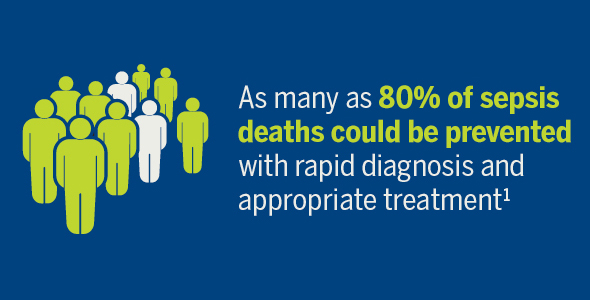AKI can occur within a few hours or days and causes a build-up of waste products in our blood. It also makes it difficult for our bodies to maintain the correct balance of fluids. The build-up of waste products and fluid imbalance can also impact the brain, heart, lungs, and other organs in the body.
Diagnosing & Treating Sepsis: The Need for Speed
Reduction in sepsis mortality is directly dependent on early identification and rapid initiation of appropriate antimicrobial therapy. Fast and accurate diagnosis may also shorten the length of a hospital stay and potentially help reduce the emergence of multidrug-resistant bacteria.
Life After Sepsis is Often Challenging
Of the 30 million people who get sepsis each year, 24 million survive. While battling sepsis is difficult, the complications that people face after their ordeals are over can be challenging or even deadly.
The Value of Diagnostics in Combatting Antimicrobial Resistance – A Public Health Problem
At this year’s World Anti-Microbial Resistance Congress, Dr. Tristan Timbrook delivered a...
Lindsay Denny Discusses the Critical Role of WASH in Preventing Infectious Diseases and Fighting Antimicrobial Resistance
WASH, which stands for water, sanitation, and hygiene, are basic...





